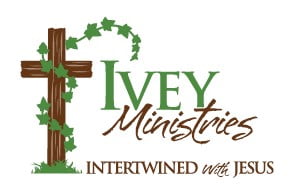Intertwined

Psalm 147: 10 NIV
His pleasure is not in the strength of the horse, nor his delight in the legs of the warrior; the Lord delights in those who fear him, who put their hope in his unfailing love.
I don’t know that I have ever seen this verse so clearly before. We see what we are able to see, what our hearts are prepared for. I accuse God of adding things to my Bible that weren’t there previously. It is amazing how you can read the same passage year upon year and then, all of a sudden, there is something there you have never seen before. I suppose that means I am ready to hear this passage. Let us hope I am ready to share it as well.
God has continually had me teaching on being intertwined with Him, see our logo above. It is a representation of us intertwined with Christ. What is so important about this scripture is not only that we are expected to live in this intertwined existence but also that our Father is delighted with those whose trust isn’t in their own strength, but rather, in His.
Intellectually, we all agree that leaning on the Father’s wisdom and strength is the right and proper thing to do. It is the smart way to live life. The problem arises when faced with a new challenge or project. Our first reaction is not always to stop and consult the Father. Usually we get in our own heads about what is needed. Sometimes that immediately translates into activity, still failing to pause and consider. It is not that we don’t believe. It is simply a matter of habit. We are accustomed to jumping into action. It doesn’t make us bad people, but it does show why we need the power of transformation in everyday life.
God doesn’t transform us because we are bad and that is really important to understand. Instead, He is attempting to lead and teach us. Jesus’ coming has a great deal to do with integration with the Father. The Trinity comes to live in us, and Jesus wishes to teach us continual communion with them. He wants us to learn how to walk, step by step, day by day in their anointing and presence. Sounds good, doesn’t it?
God is pleased when we invest our lives in a continuous communion with Him. He does not delight in human strength. Instead, He wants to empower us with his strength. His plan is for us to be in constant communication with Him, even in our every breath. He can be that close to us so that at any moment, we can inquire of Him and receive answers and guidance. I like that. I hope you do too.


